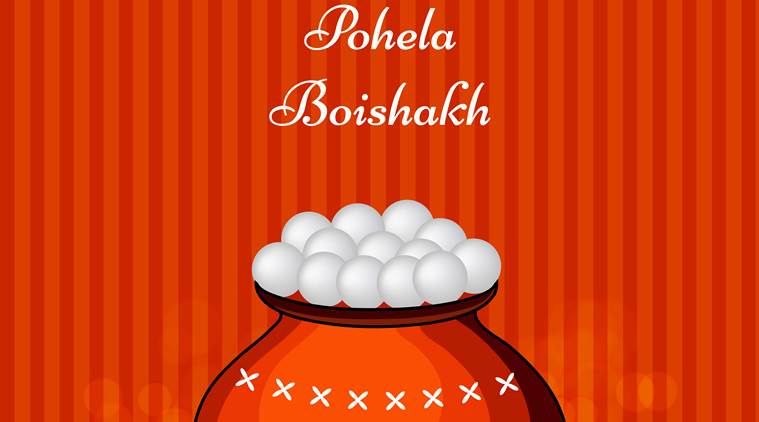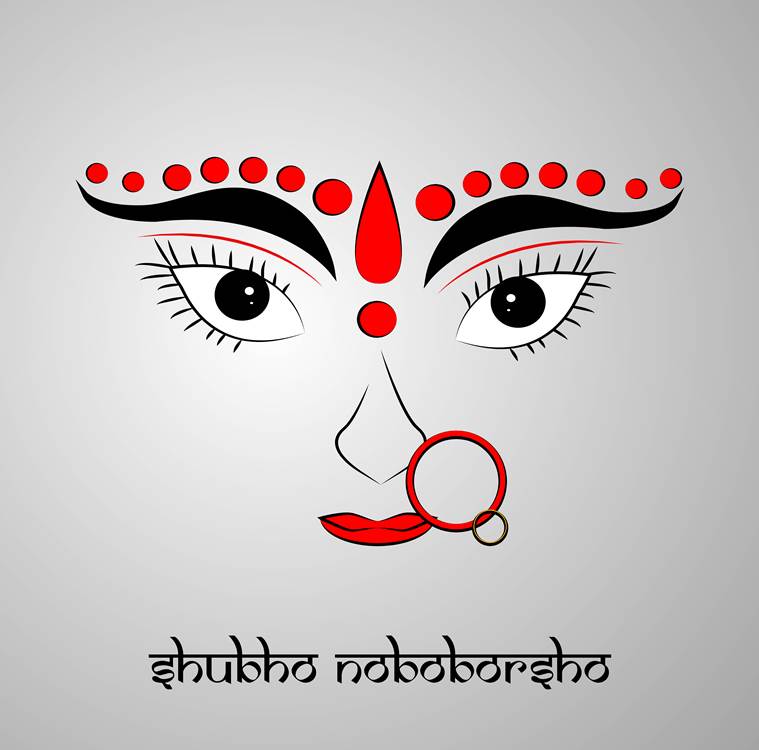 Shopkeepers often invite their regular customers — with whom they have good working relations — on this day, to offer them sweets and other gifts. (Source: Getty/Thinkstock)
Shopkeepers often invite their regular customers — with whom they have good working relations — on this day, to offer them sweets and other gifts. (Source: Getty/Thinkstock)
When it comes to food and celebrations, there is no beating the orthodox Bengali. Among the other days of the year, every Bengali wants to especially get on with the festive gusto during the five days of Durga Puja (naturally), and on Poila Baisakh, which marks a new year as per the Bengali calendar.
‘Poila’ means one; and on the first day of the year, most Bengali families living in the subcontinent and elsewhere, customarily engage in a few activities.
Among them is the cleaning of the house and the alpona-making. Cleaning, because on ‘Nobo Borsho’ (New Year), guests are known to land at your doorstep unannounced; and alpona-making because every cultural and religious occasion warrants it. This year, however, things are bound to be mighty different, given the lockdown and social distancing. But explain that to a Bengali and watch them shake their head furiously. It is New Year — the cleaning has to happen, they will say.
 Bengali businessmen pray to Lord Ganesha and Goddess Lakshmi for good fortune on this day. (Source: Getty/Thinkstock)
Bengali businessmen pray to Lord Ganesha and Goddess Lakshmi for good fortune on this day. (Source: Getty/Thinkstock)
Nobo Borsho is particularly important to the Bengali business class. It marks the beginning of the new financial year. As such, businessmen start maintaining a new ‘halkhata’ or a ledger for the entire duration of the year. They hope to make the best out of the year, and prosper. As such, they pray to Lord Ganesha and Goddess Lakshmi for good fortune. Also, shopkeepers often invite their regular customers — with whom they have good working relations — on this day, to offer them sweets and other gifts, and a new calendar.
Any chance to dress up and gather at a relative or a friend’s place gets a nod. It is no different for Poila Baisakh either. It is mandatory to wear a new dress and show up at a cultural gathering. If it is a close family member who calls for a Nobo Borsho get-together, a no-show is frowned upon. Many nuclear families also choose to go out and dine at their favourite restaurant. As mentioned earlier, this year will be different. Most families will make-do with phone and video calls to wish loved ones “Nobo Borshe’r subechcha”.
Though a day’s programme, without all the brouhaha typical of Durga Puja, Nobo Borsho is a hearty celebration that the community looks forward to every year.